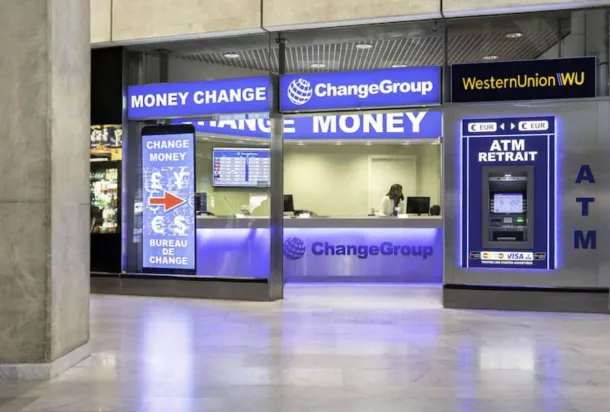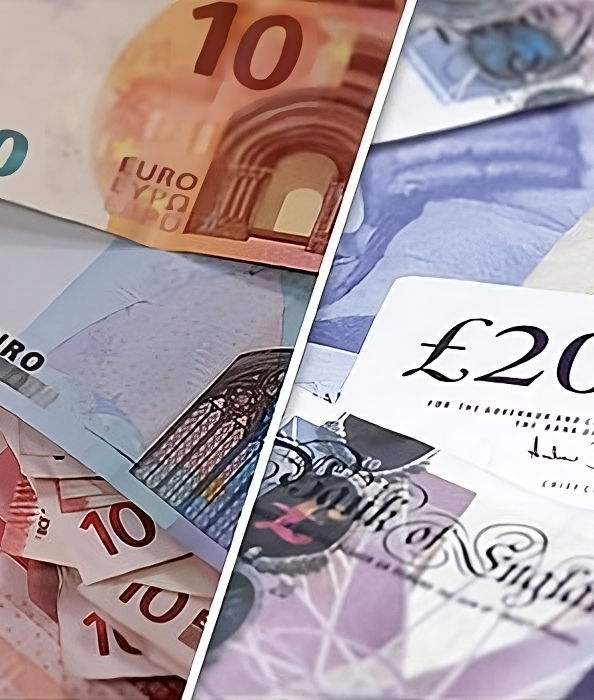20 Recommended Ideas For Choosing Exchange Rate Websites
Top 10 Tips On Currency Conversion Fees In The Form Of Currency Exchange Rates And Exchange RatesThe cost of conversion to currency is a major issue in today's world-wide economy, no matter if you travel overseas to conduct business, or manage investments in foreign currencies. The fees can be subject to broad variations, based on factors such as the source of the service, exchange method and currencies. It is possible to save money by understanding how to deal with these charges and make more informed choices. These are the top 10 currency conversion tips that will help both travelers and businesspeople.
1. Different kinds of currency exchange fees
The fees for conversion of currency can take on various forms. They may be transaction fees, service charges, or exchange rate markups. The transaction fee is a set amount for each exchange. But, service charges can be calculated as a percentage. Markups on exchange rates occur when the provider is offering an unfavorable rate compared to the market rate. Understanding these various types of fees will aid you in determining the most cost-effective options to meet your requirements.
2. Compare rates across multiple providers
Comparing rates is essential before exchanging currencies. Most banks, currency exchange kiosks, or online platforms may offer different rates and charges. Currency converters allow you to evaluate rates in real time and determine the total cost including the fees for each choice. This can help you find the best deal, and help you save money, particularly when you're trading large quantities.
3. Find no-fee exchange rates
Certain banks and financial institutions offer accounts with free currency conversion or reduced fees on specific transactions. Fintech and online banks provide, for example, account holders a free exchange of currency. Create an account at these companies if you frequently work with foreign currencies. You will not have to pay unneeded charges.
4. Beware of DCC costs
You may be given the option of paying in your own currency when using your credit or debit card overseas. This is known as Dynamic Currency Conversion. Although this may sound convenient however, it is often accompanied by higher conversion rates and charges for exchange. To avoid additional charges make sure you pay in the local currency. This will ensure you get the best possible exchange rate.
5. You can make use of credit cards without paying foreign transaction fees
When you travel, using credit cards that do not charge foreign transaction charges can save you money. Numerous travel-related credit cards offer this advantage, allowing you to make purchases abroad without incurring any additional costs. It is important to choose the credit card that is the best fit for your preferences for travel and has the most favorable exchange rates.
6. Think about using ATMs for Currency Withdrawal
You can obtain better exchange rates by using ATMs instead of currency exchange kiosks. But, you should be aware of the potential charges charged by both your bank and the ATM operator. If you want to save money, consider using ATMs associated to your bank. You are also able to withdraw cash in local currency and avoid currency conversion fees.
7. Plan ahead for currency conversion
Avoid making last-minute exchanges of currencies at airports and other tourist destinations. The costs charged are much higher. Make a plan ahead and make use of lower prices and more favorable exchange rates. You can convert a small amount prior to your travels to pay for immediate expenses. Then, you can make a bigger change once you are at a favorable rate.
8. Monitor Exchange Rate Trends
- Keeping an eye on changes in exchange rates can help you identify the best time to convert your currency. Follow these trends to ensure you are prepared to get the most of your exchanges. Utilize historical and financial data to help you make informed decisions. This allows you to profit from favorable circumstances.
9. Include hidden charges into your transactions
Be aware that some companies have hidden charges that are not immediately obvious. These could include charges such as service fees and maintenance fees on foreign currency accounts. It is important to review the fine print and ask questions in order to understand the full range of charges associated with converting currencies. This will help you avoid unexpected costs and help you make better decisions.
10. Consult Financial Experts for Large Transactions
Contact a financial expert if you are dealing with massive transactions or complicated transactions involving currency exchanges. Experts in currency can offer insight on the most effective methods for cutting down on conversion costs and maximizing your transactions. This is crucial for those that are involved in international trade, or investors looking to manage their exposure to currency effectively.
With these helpful guidelines on how to reduce the cost of currency conversion, you can navigate the complexity of currency exchange more effectively when you're on the road, conducting business internationally or managing investments in foreign currency. Understanding the different aspects of the conversion fee allows you to make financial decisions that are in line with your professional or personal goals. Take a look at the best CAD to USD examples for blog tips including british pound to dollar, convert gbp to usd, usd to thb, us dollar in indian rupees, cad to usd, pound to dollar, dollar to php, won to usd, cad to usd, us dollar to rmb and more.

The Top 10 Tips To Help You Choose The Currency Of Your Destination In Terms Of Exchange Rates And Rates
Knowing the currency of destination for the country is crucial for anyone who is conducting international business or executing investments on foreign markets. The destination currency is the currency of the country to which you're travelling or conducting business. It could affect your financial decisions. Changes in the exchange rate, conversion fees, and the overall economic climate can impact how much you spend when traveling, or how profitable your business operations and investments are. By familiarizing yourself with the currency you will be using and its implications to your financial strategies and make informed choices. Here are the top 10 tips to manage the foreign currency of your destination when it comes to your financial goals.
1. Before Traveling, Research Local Currency
- Prior to traveling to a new location make sure you study the currency of the country. Learn the exchange rate of your currency compared to the rates of other nations, and discover the value of your currency. This information can aid you in managing your finances and prevent overpaying for goods and services. Websites such as XE.com provide real-time information as well as historical exchange rates so that you can calculate the value of your currency abroad.
2. Verify the exchange rates before you depart
Being aware of these changes will allow you determine the ideal time to exchange your cash. You can set alerts using apps and currency tracking tools to receive notifications when the exchange rate is favorable. If you observe that the currency has been weakening in the past, it's worth exchanging currency earlier to increase your purchasing capacity.
3. Currency Conversion Costs to be considered
- Currency conversion fees differ widely among banks, currency exchange services and ATMs. You should be aware of any costs associated with the conversion from the currency you are using at home to the currency you wish to use. These fees can quickly mount up. Check rates from various service providers, and think about using platforms online that provide affordable exchange rates as well as lower costs for conversion of currency.
4. Make use of the local currency when making transactions
When you make purchases in foreign countries make sure to pay in the local currency instead of the currency of your home country. If you choose to pay using your home currency, it will often result in an automatic currency converter (DCC) which will cost you more fees and less favorable exchange rates. You may benefit from lower exchange rates when you pay in the local currency.
5. Prepare your cash needs in advance
- Although credit and debit cards are accepted in various countries, it's vital to have some cash in case of smaller purchases such as tips or other locations that might not take credit cards. Check out the withdrawal limits for cash and fees associated with using ATMs abroad and think about taking a larger sum simultaneously to avoid transaction fees. The convenience of having local currency readily available will enhance your experience while travelling and help avoid hassles.
6. Find out about local payment preferences.
Different countries have different preferences in payment methods. Cash might be the preferred method of payment in some places, whereas credit card usage is more prevalent. You can learn about local payment methods by studying the local culture of the area. This information can be used to plan your payment method and make sure you've got all the tools to make a smooth transaction.
7. Take note of the currency risk that you are taking for your business
If you plan to do business in a foreign country, be aware of the currency risks associated with changes in exchange rates. An abrupt change in the exchange rate of the foreign currency could have a negative impact on profits margins and the overall performance of your business. Consider using hedging strategies including forward contracts to ensure that exchange rates are fixed to protect future transactions from the risk of losses resulting from fluctuations in currency.
8. Make a note of the money you spend
To ensure you stay within your travel budget, it is vital to keep track of your expenditures in the currency that you will be using. Track your spending by using budgeting software, or keeping a detailed account of all expenses. You will be able to keep track of the amount you spend in local currency and prevent spending too much.
9. Financial Regulations - Become educated
Different countries have different laws concerning the exchange of currencies, cash transactions, and reporting requirements. Make sure you are familiar before you travel or conduct any type of business, with these rules. Some countries could limit the amount of cash you can bring or take out, while others might require big transactions to be reported. It is crucial to stay aware of these rules so that you can navigate these regulations without hassle.
10. Consult currency experts for Investments
Get advice from experts in currency or who are experienced in international investing if you're monitoring your investments in foreign markets. They can help you understand the impact of currency fluctuation on your investment portfolio and devise strategies to control risk associated with currency. Their knowledge can be valuable in understanding the complexity of the currencies you are destined to and maximizing your financial results.
These detailed tips will help you control the currency of your destination to help travelers to travel, conduct business or track your investments. Understanding the significance of destination currency will allow you to make smarter financial choices that are in line with the goals of your business and your personal life. View the most popular zloty for site advice including dollar to mexican peso, usd to mexican peso, usd to indian rupees, japanese yen to usd, usd to eur, usd to pound sterling, usd to colombian peso, dollar to yen, us dollar to rupees, usd to aud and more.
